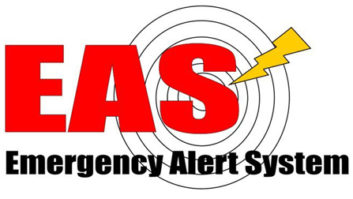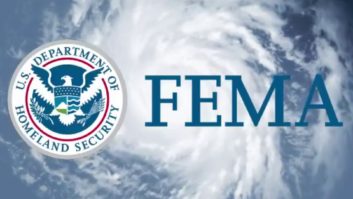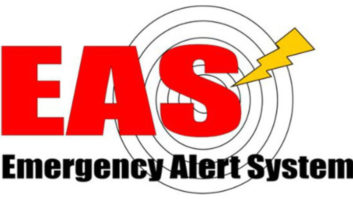“We don’t expect to fix EAS overnight. With your help we will make incremental improvements.”
That was FEMA IPAWS EAS Test Program Manager Manny Centeno speaking during a webinar Monday on November’s national EAS test.
FEMA, along with test partners NOAA and the FCC, want to treat broadcasters and cable operators as first responders, meaning with high visibility, because they provide information to the public on a timely basis during emergencies, Centeno said.
Centeno said FEMA has met with several state broadcast associations to discuss the Nov. 9 test; he noted that several experts discuss the issue in blogs. FEMA also is developing a best practices guide.
He asked the 800 or so people estimated to be listening whether a wider education campaign with the FCC and NOAA would help.
Whit Adamson, president of the Tennessee Broadcasters Association, said that would be helpful but funding is an issue for his organization. “We’re on a shoestring,” he said. “Education is something we want to do, but when you talk about training and equipment,” he said, it “begins to smell like money.”
Adamson said staffing can be an issue for radio’s emergency preparedness in general. He said an FCC study indicated that Tennessee has nearly 200 radio stations with five or fewer employees each. Many small stations also rely on contract engineers. “When things start breaking, everybody’s got the same problem.”
He said it will be critical that on-air people are trained in EAS, adding that in an FCC inspection, agents likely would ask the person on the air to send an EAS message.
At Citadel Chicago’s cluster, state plans for emergencies are posted for the operator on duty, said Chief Engineer Warren Schulz. “They do drills. They have to capture and forward [required] monthly tests and random weekly tests. So each operator has contact with EAS.”
The LP heritage stations in larger cities have technical and newsroom staffs, and resilience with big transmitter plants and fuel storage, he continued. “But in rural stations, you don’t know what you’ll find.”
Adamson asked whether anyone on the call knew of grants or other pockets of funding available for EAS training or equipment. Centeno said while there are no answers on that question now, it’s good to know the challenges broadcasters face.
The next webinar on the national EAS test is planned for Sept 1. The topic is equipment operation and maintenance.












